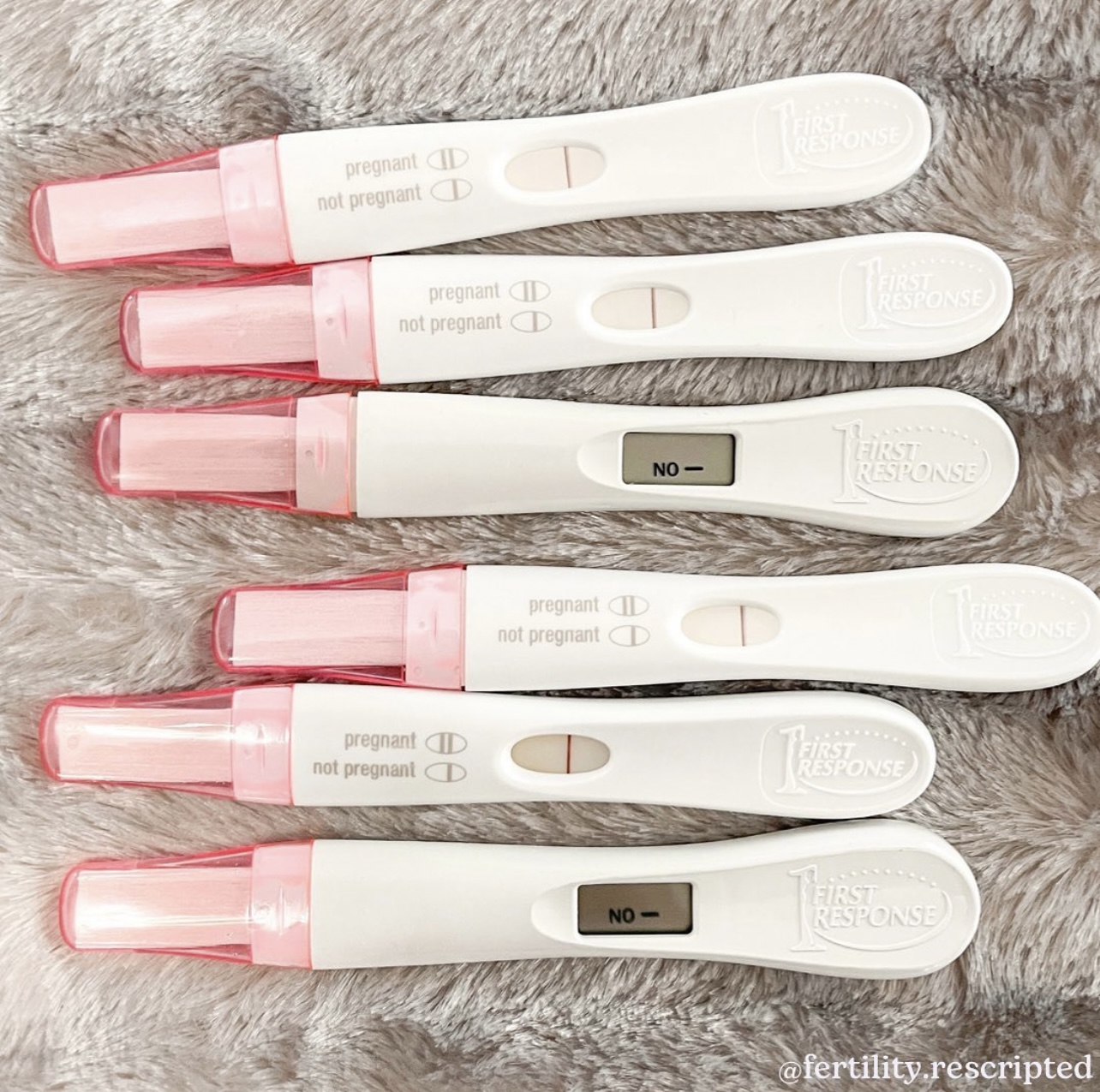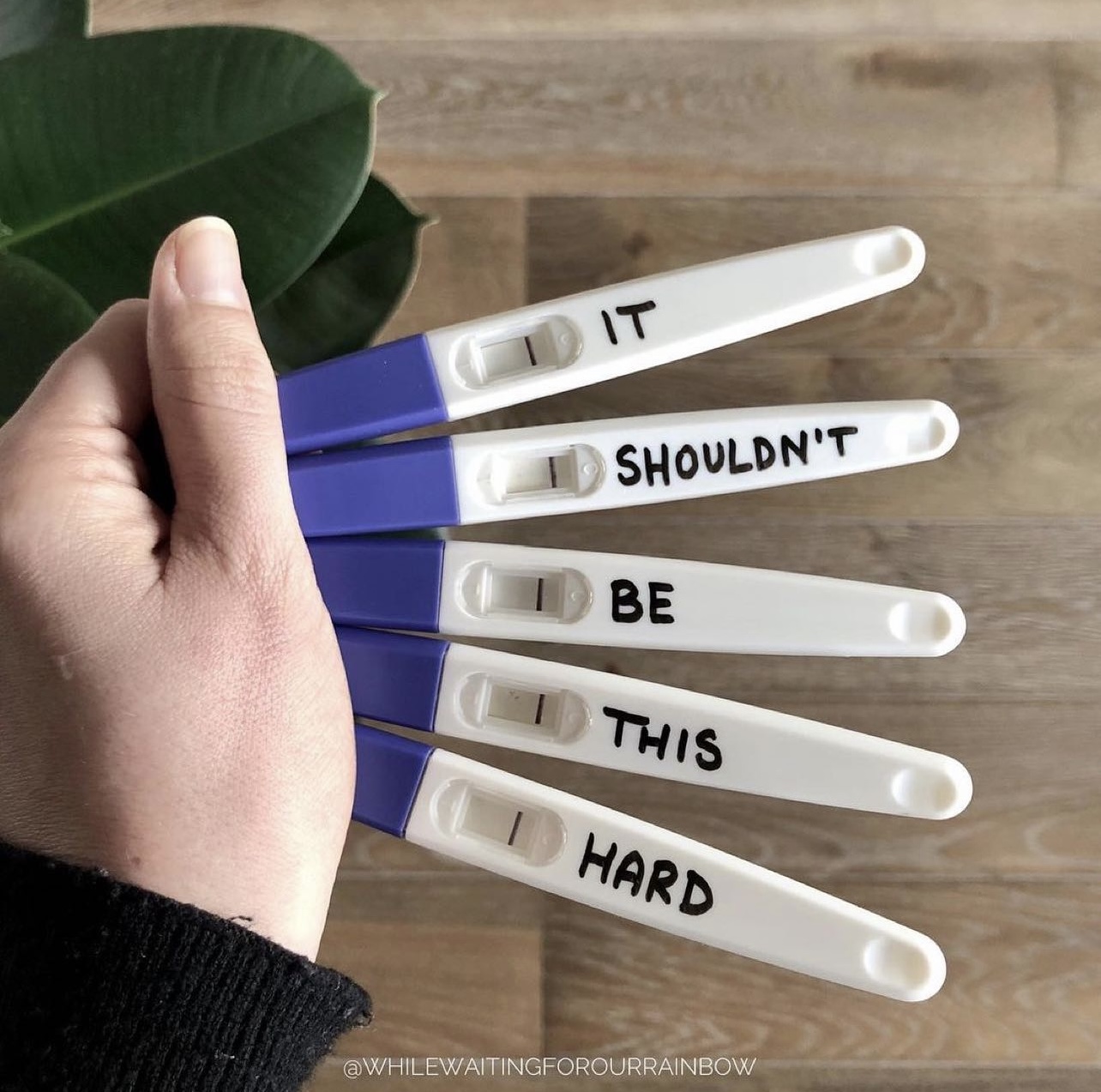There’s no sugarcoating it: a failed IVF cycle is devastating. Whether your egg retrieval ended with no viable embryos or the embryo you transferred failed to implant, it’s completely normal to feel upset, confused, angry, numb, and discouraged. After all, you just put endless amounts of time, energy, money, and hope into the IVF process, only for it to end in heartbreak.
It’s important to remember that you are not alone, and a negative result doesn’t mean you failed. Even in the midst of such a painful season, there is still hope.
What to do after a failed IVF cycle
While it can be difficult to find a balance between grieving the past and having hope for the future, it is possible. Here are 6 suggestions for what to do after a failed IVF cycle:
1. Take time to grieve and process the news
A failed IVF cycle often brings up feelings of loss, whether it’s the loss of an embryo or the family you had envisioned. It’s so important to take the time to grieve and process this loss. Keep in mind that you and your partner may grieve in different ways, and that’s okay. You may feel like crying, talking it out, expressing what you are feeling through art or music, spending time in nature, journaling, moving your body, or crying some more. Do what you need to do in order to acknowledge and work through the hard feelings and emotions that you are experiencing.
2. Talk to someone you trust
One of the best ways to process a failed IVF cycle is to talk to someone you trust, like your partner, a close friend or family member, or a counselor. Sharing what you are going through and how you are feeling is a way to verbally process the news; it can be healing to get it out, instead of bottling it up inside. Talking to someone you trust also opens the door to receiving support and validation.
3. Prepare for your follow-up appointment
After a failed IVF cycle, your fertility clinic will have you schedule a follow-up appointment (sometimes referred to as a “WTF appointment”) with your Reproductive Endocrinologist. At this appointment, your doctor will go over anything that may have contributed to why your IVF cycle didn’t go as planned.
In preparation for this appointment, spend some time making a list of all of the questions that you would like to ask your doctor. At the same time, be prepared to not get all of your questions answered. Here are some good ones to get you started:
- Do you recommend that we move forward with another cycle?
- What would you change if we did another cycle?
- What would you keep the same if we did another cycle?
- Are there any additional tests that you recommend?
- Are there any lifestyle changes that you recommend?
4. Consider all of your options
After the follow-up appointment, the next step is to consider all of your options. Don’t make a decision when your emotions are still running high. Instead, do your research, weigh the pros and cons of each option, and take all the time you need to contemplate what the best course of action is for you and your partner. Options you may consider include:
- Taking a break
- Doing another round of IVF at the same clinic
- Scheduling a consultation with a doctor at another clinic
- Pursuing additional testing
- Pursuing a different type of treatment
- Pursuing an egg donor, sperm donor, or embryo donor
You may have glossed over the first item on this list — taking a break from treatment — without giving it much thought. It’s common for couples to want to continue full steam ahead into the next cycle, or their next option as soon as possible. But it's important to at least consider taking a break. Even if it's just a couple of months, time can give you a better perspective on the situation, allow you to make decisions with a clearer mind, and even save money. The bottom line is: don’t be afraid of taking a break if that’s what you feel you need.
5. Consider making some lifestyle changes
If you and your partner decide to continue trying to conceive via IVF, you may consider making researched-based lifestyle changes or doing something to increase fertility that you have not previously tried. Consult your doctor before changing lifestyle factors.
Overhauling your diet is probably the least fun and hardest change to stick with, but it can improve fertility for some people. Nutritionist Michelle Strong recommends incorporating more plant-based foods into your diet and avoiding sugar, caffeine, alcohol, and gluten when possible. These changes will reduce inflammation and help to balance hormones, which research shows can improve fertility. Her top foods for balancing hormones include pumpkin seeds, avocado, turmeric, spinach, and broccoli.
Other lifestyle factors to consider include:
- Supplements
- Acupuncture
- Meditation
- Moving your body
- Replacing personal care and household products with natural alternatives
As important as it is to work on improving your physical health, it’s not worth sacrificing your mental health in order to do so. If eating healthy 70% of the time is what works for you, that’s great! Small changes can make a difference, too.
6. Take care of yourself
IVF takes a toll on your body and your mind. Listening to your physical and emotional needs is crucial to overcoming a failed IVF cycle. After IVF, it can take a while for your body to regulate its hormone levels; you may feel extra tired or overly emotional. Go easy on yourself, whether that means canceling plans to take a nap, or scheduling a coffee date to get support from a friend. Sometimes, even rest can be productive. Your body and mind will thank you later!
Lastly, it’s important to remember that a failed IVF cycle is not necessarily where your story ends. It does not rule out the possibility of growing your family, and it is NOT your fault. Keep taking steps forward on your own personal timeline, grieve, process, talk to your doctor, consider your options, go easy on yourself, and slowly but surely, you will make it through.
Kristyn Hodgdon is the Co-Founder and Chief Community Officer at Rescripted.













.jpg)









